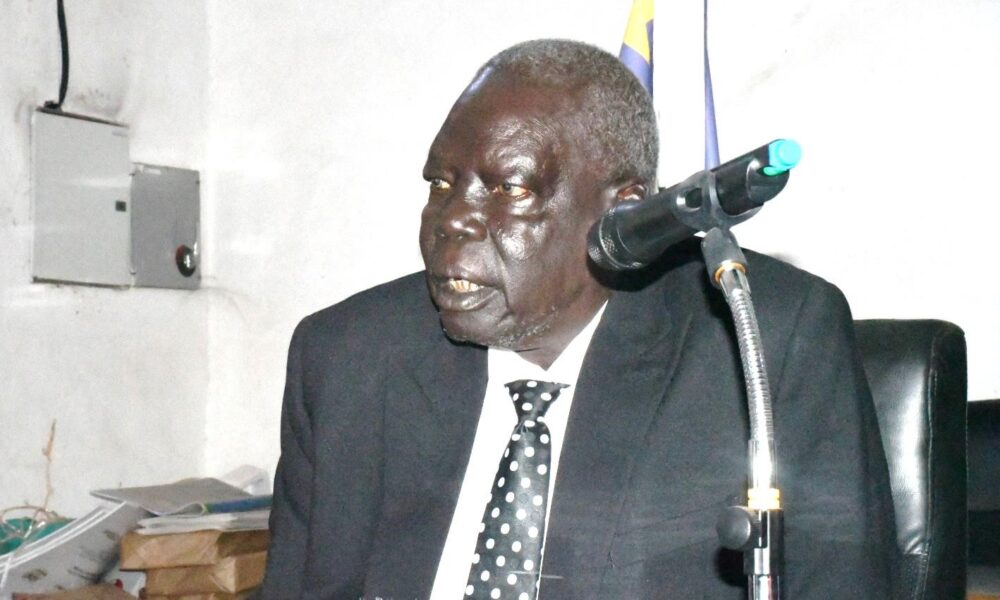By Charles K Mark
Government has set benchmarks to renew the mandate of United Nations Human Rights Commission on South Sudan.
Minister of Justice and Constitutional Affairs, Justice Ruben Madol Arol said the government demands that the Commission shares evidence and names of the individuals and entities accused of human rights violations before releasing their reports.
Talking to journalists on Thursday, Justice Madol noted that the procedure would enable the government to evaluate the evidence with a view to address them through accountability.
“The government accepts the Commission to monitor and report human rights situations, but its powers of the investigation should be relinquished to the Government and UNMISS,” Madol stated.
A delegation headed by the minister met with the Undersecretary General of the UN Human Rights Commission in Geneva.
He added that the government rejects the intrusion by the Commission and expansion of its mandate into monitoring the implementation of the R-ARCISS.
He said the monitoring of the 2018 Peace Accord to solely remain to the Reconstituted Monitoring and Evaluation Commission (R-JMEC), a body mandated by the agreement.
“If these positions are accepted, the government will accept the extension of mandate of the Commission for a period of one year only,” he said.
The Human Rights Commission Report released last month highlighted the prevalence of sexual and gender-based violence against women and girls in South Sudan.
However, the government rejected the findings of the Commission, labelling it “misleading” and “baseless”.
The government demanded concrete evidence and questioned the alleged scale of such abuses.
Early this week, Amnesty International called for the renewal of the mandate of the Commission on Human Rights in South Sudan.
According to the International Rights Watchdog, the fundamental issues of setting up the human rights body are yet to be realized, as are the causes of conflict and atrocities.
As South Sudan prepares for elections, Amnesty International argues about the shrinking civic and political space coupled with arbitrary detentions of political opponents, the absence of basic freedoms of movement and association, the censorship of independent media, and the harassment of civil society actors.
According to the watchdog, it includes an upsurge of ethnic conflicts in Abyei and Greater Pibor Administrative Areas, as well as in Jonglei, Warrap, Upper Nile, Western Equatoria, and Central Equatoria States.
Meanwhile, the United Kingdom also echoed Amnesty International’s call for the UN Security Council to renew the mandate of the Commission on Human Rights in South Sudan.
The UK’s Human Rights Ambassador, Rita French, delivered her country’s statement for Item 2 of the general debate.
“We continue to support the implementation of the peace agreement as South Sudan works towards credible and peaceful elections. But accountability remains severely limited, and we urge this Council to extend the mandate of the Commission on Human Rights,” said Amb. Rita.




